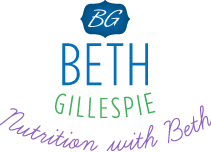I was so excited to see Nicholas Carr interviewed last week at the Commonwealth Club in San Francisco. Nicholas Carr wrote the NY Times best selling book The Shallows – What the Internet is Doing to our Brains, which I blogged about this summer. His new book, The Glass Cage: Automation and Us, explores how increased automation is affecting our work and personal lives.
What a loaded topic! Does shifting our attention to computer screens leave us disengaged and discontented?
Automation certainly reduces the amount of drudge work we have to do and provides our lives with greater ease and convenience, which is generally a good thing. But where do we draw the line?
I love his example of being a 16 year old teenager and learning how to drive a manual car. I can relate to this because I also learned how to drive on a manual — an old Volkswagen Dasher! Carr writes how he was so excited to get an automatic car, and his wish was granted two years later. He loved his automatic car for about one month…and then felt bored and disengaged while driving. Obviously, driving an automatic is not as engaging as driving a manual car. And now we have the Googlemobile, a self driving car. Talk about automatic! But do we really want this?
Nicholas Carr asks how often we really stop to think if we want the next automation, the next gadget, etc.? I can tell you right now, after some thought, I do not want a driverless car. I get bored being the passenger. There is just something about driving on an open road, even in an automatic, that I don’t want to give up. As someone in the audience stated: every automation is an amputation. Food for thought.
What does this all have to do with health, nutrition, and fitness? Well, there are apps to help us shop, cook, put together meal plans, track our daily steps, monitor how many calories we eat and how many we burn, and even assess how well we sleep. These apps are great in that they help us put together shopping lists that match recipes, give us great ideas for meals, measure our progress when it comes to exercise and calories burned, which then in turn motivates us to continue with our healthier life-style choices. It is easy for us to measure our progress with these apps. And this is a good thing. Is there a downside?
An app does not “listen” to your body and make the decision that you really need that extra hour of sleep on Monday instead of a work out, or that you feel like you are fighting a cold and that you need to slow down for a couple of days. An app will not tell you that your body really needs more protein today due to a lot of work or emotional stress or that you need to have some nourishing chicken soup to fight off a cold.
Following a recipe or meal plan on an app is certainly helpful; however you may be overriding what your body really needs by following the app instead of your own intuition. Something to think about. Would love to hear your comments here.
